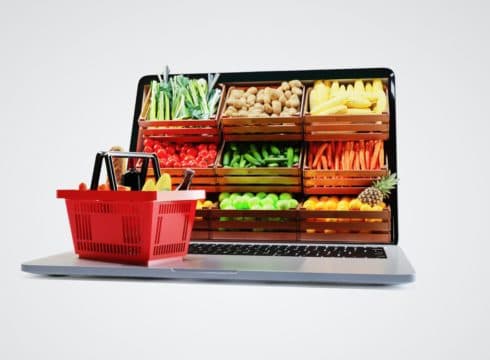Swiggy’s grocery delivery service ‘Swiggy Stores’ connected consumers to nearby stores for groceries and other essentials
Swiggy’s Instamart will operate a chain of dark stores to service hyperlocal grocery demand
Swiggy plans to scale up Instamart from Bengaluru and Gurugram to multiple cities to challenge the bigger online grocery startups
Inc42 Daily Brief
Stay Ahead With Daily News & Analysis on India’s Tech & Startup Economy
Bengaluru-headquartered foodtech unicorn Swiggy has reportedly shut down its online grocery marketplace and plans to replace it with ‘Instamart’, an instant delivery service for groceries and other household items, fulfilled through a network of dark stores.
In August last year, it was reported that Swiggy was piloting Instamart in Gurugram.
“Through Instamart, we want to introduce the convenience grocery category in India. With the fastest deliveries in the segment (30 – 45 minutes), day and night serviceability (7 am – 12 midnight), a wide assortment across categories such as instant meals, snacks, ice creams, beverages, fruits and vegetables, Instamart will address the unmet grocery needs of the time-pressed, convenience-seeking urban consumer,” a Swiggy spokesperson had told Inc42.
While Swiggy’s grocery delivery service named ‘Swiggy Stores’ was a hyperlocal delivery service for groceries and other essentials, Instamart will see the company operate a chain of dark stores to service consumer demand. The advent of dark stores is a trend that has created a dilemma for online grocery startups as it does offer some benefits over partnering with kirana stores, but also requires a larger upfront investment, as seen in our detailed look at the model — The Hyperlocal Conundrum: Kiranas Vs Dark Stores In India’s Retail Market Post-Covid.
According to Entrackr, which first reported the development, Swiggy plans to scale up Instamart, currently available in Bengaluru and Gurugram, as it offers better margins compared to the marketplace one. The company plans to expand Instamart to multiple cities to challenge the bigger players in the grocery delivery segment such as Bigbasket, Reliance-owned JioMart, Grofers, Flipkart SuperMart, Amazon Fresh among others.
“We expanded our services across the country during the lockdown as consumers turned to Swiggy not just for food but also other essentials. Given that movement restrictions have been eased, we are rolling back grocery delivery and focusing on offerings like Swiggy Genie,” a Swiggy spokesperson told the publication.
As of January 20, 2021, the ‘Swiggy Stores’ tile is not visible on the Swiggy Android app for users in Delhi. The company still offers deliveries from pet care stores, meat stores and its pick-up and drop facility called ‘Genie’.
BigBasket and Grofers, two of the biggest players in the online grocery delivery space in India, witnessed a spike in sales amid the Covid-19-induced lockdown last year. While BigBasket reported a 35% increase in sales in April, Grofers registered a 60% increase in its gross merchandise value (GMV), compared to pre-Covid-19 levels.
Zomato’s Exit And Revenue Challenges In Grocery Delivery
According to a report by market research firm RedSeer Consulting, India’s online grocery delivery segment was expected to grow from a GMV of $1.9 Bn in 2019 to $3 Bn last year due to tailwinds unleashed for the sector amid the lockdown. The report adds that a change in consumer behaviour because of the pandemic could see online grocery stories increase their share in the overall food and grocery market from 0.3% in 2019 to 2.3% by 2024, as the online grocery segment is growing at a CAGR of 57% and is expected to reach a market size of $18 Bn by 2024.
Moreover, the commissions in the grocery delivery space aren’t as attractive as compared to what food delivery startups such as Zomato get with the delivery of cooked food. The low order value also makes it very difficult for hyperlocal delivery players to actually make anything substantial out of it. Other problems include stock management as most of the retailers often don’t update the stock while taking orders.
Zomato, which entered the online grocery delivery space in April 2020 with the launch of ‘Zomato Market’, wrapped up the business just two months later. Currently, the grocery delivery option or Zomato Market is not available on the Zomato app.
This despite the company’s COO of food delivery Mohit Sardana claiming in April that the company had all the factors in place to sustain the new business model. “Grocery delivery has always been on our long term radar since it fits into our vision of ‘better food for more people’. Given the current need of our customers, we quickly sprung into action to serve,” Sardana had said.
Update – 11.45 AM, January 20, 2021: The previous version had erroneously attributed TOI as the original source of the news. The same has been corrected to Entrackr.
{{#name}}{{name}}{{/name}}{{^name}}-{{/name}}
{{#description}}{{description}}...{{/description}}{{^description}}-{{/description}}
Note: We at Inc42 take our ethics very seriously. More information about it can be found here.


